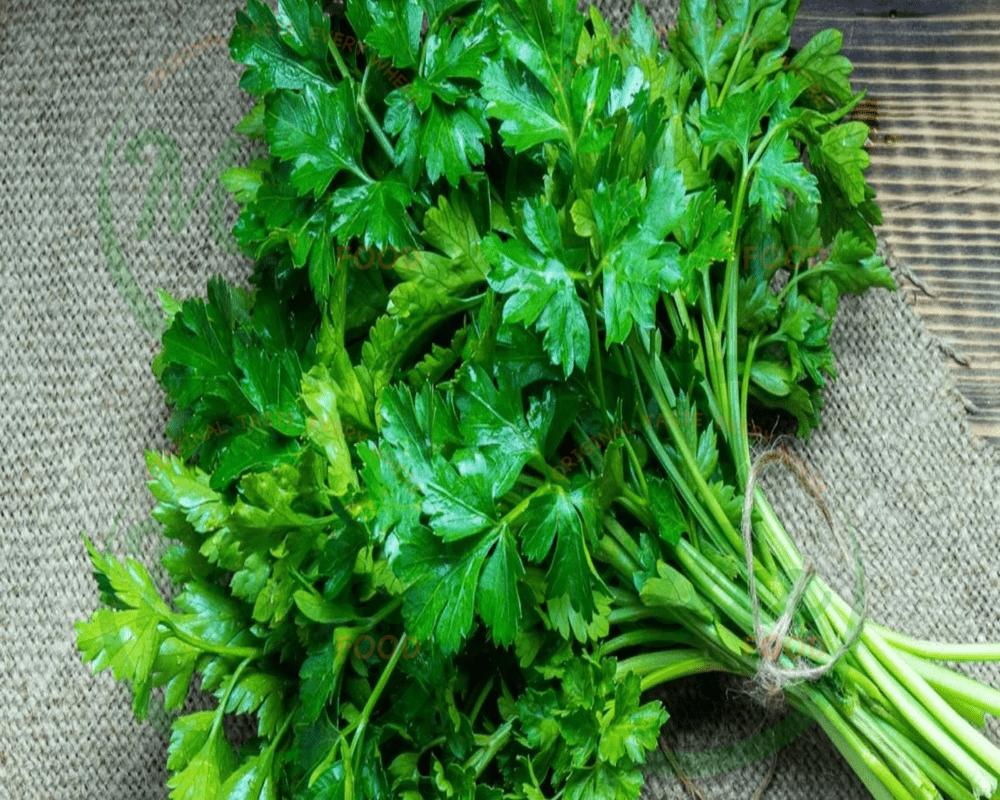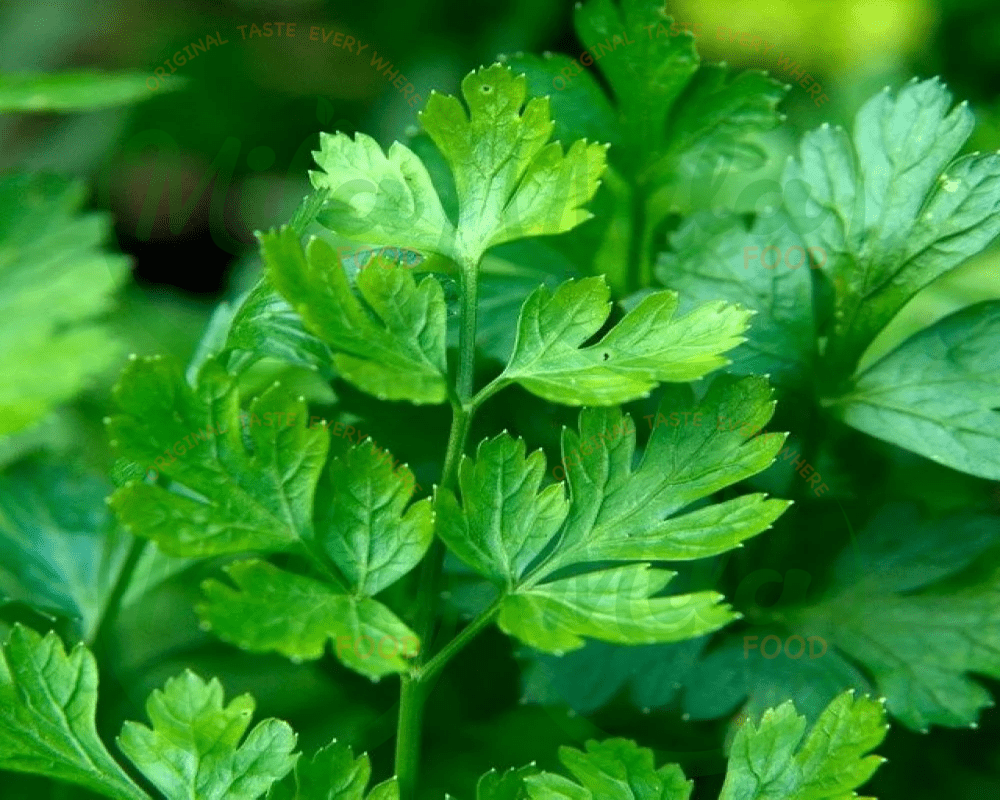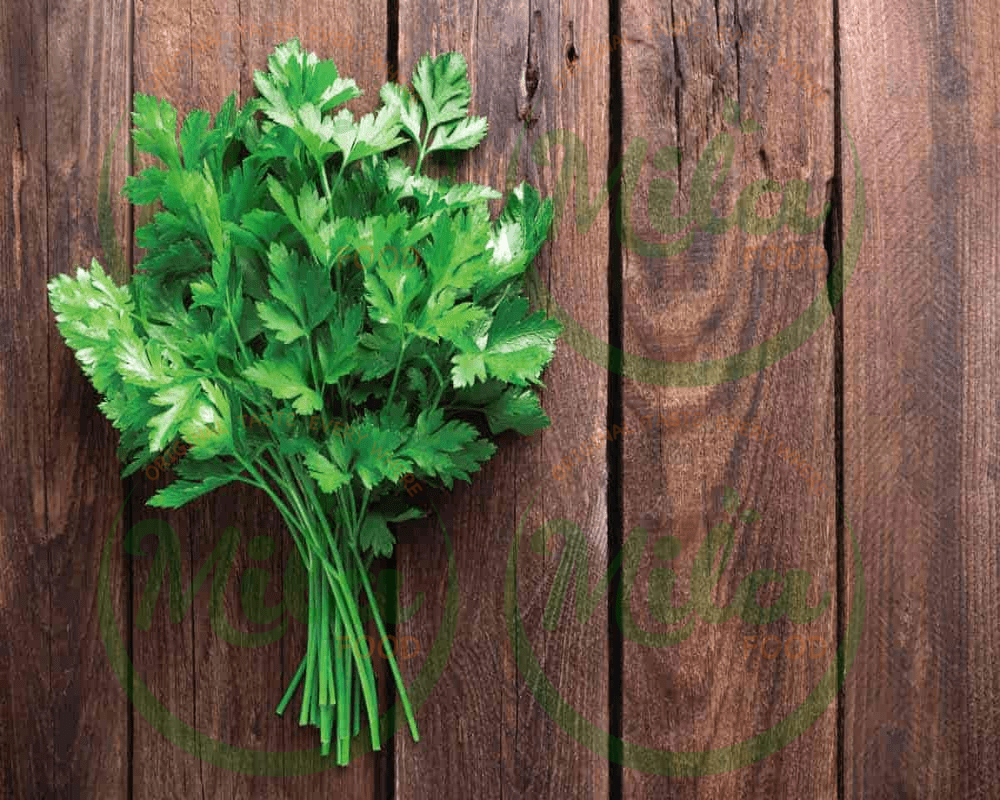


Welcome to the vibrant world of Egyptian parsley, where freshness meets flavor in a symphony of culinary delight. With its rich history and versatile taste, parsley has been a beloved herb in Egyptian cuisine for centuries, adding brightness and depth to a wide array of dishes. Join us as we delve into the captivating story, culinary uses, and nutritional benefits of this cherished herb.
History and Origins: Egyptian parsley, scientifically known as Petroselinum crispum, boasts a heritage steeped in ancient traditions. Originating in the Mediterranean region, parsley has been cultivated and revered in Egypt since antiquity. References to parsley can be found in ancient Egyptian texts and herbal remedies, highlighting its significance in culinary practices and medicinal applications. Today, Egyptian parsley continues to thrive in the fertile soil of the Nile Delta, embodying a legacy of culinary excellence and cultural heritage.
Appearance and Flavor Profile: Characterized by vibrant green leaves and delicate stems, Egyptian parsley exudes a fresh, herbaceous aroma with hints of citrus and earthiness. Its flavor is bright and slightly peppery, with a refreshing crispness that enlivens dishes. Whether used as a garnish or incorporated into recipes, parsley adds depth and complexity to salads, soups, stews, and sauces, enhancing the overall flavor profile with its aromatic essence.
Culinary Uses and Applications: Egyptian parsley is prized for its culinary versatility, lending its distinctive flavor and vibrant color to a wide range of dishes. The tender leaves are commonly used as a garnish or ingredient in salads, dressings, and marinades, providing a pop of freshness and visual appeal. Parsley is also a key component in traditional Middle Eastern dishes such as tabbouleh and falafel, where it adds a bright, herbaceous note to the flavor profile. Additionally, parsley can be used to make flavorful herb butters, pestos, and sauces, offering endless possibilities for culinary creativity and experimentation.
Nutritional Benefits: Beyond its culinary charm, Egyptian parsley offers an array of nutritional benefits. It is rich in vitamins and minerals, including vitamin K, vitamin C, and folate, which support bone health, immune function, and overall well-being. Additionally, parsley contains antioxidants and anti-inflammatory compounds that may help reduce the risk of chronic diseases and promote heart health. Incorporating Egyptian parsley into your diet not only enhances flavor but also provides a nutrient-rich boost to your meals.
Cultivation and Sustainability: Egyptian parsley thrives in the sunny, temperate climate of Egypt, where it is cultivated using sustainable agricultural practices. Traditional farming methods ensure the preservation of soil fertility and biodiversity, allowing this cherished herb to flourish for generations to come. Whether grown in home gardens or on family farms, Egyptian parsley reflects a deep respect for the land and a commitment to sustainable stewardship.

